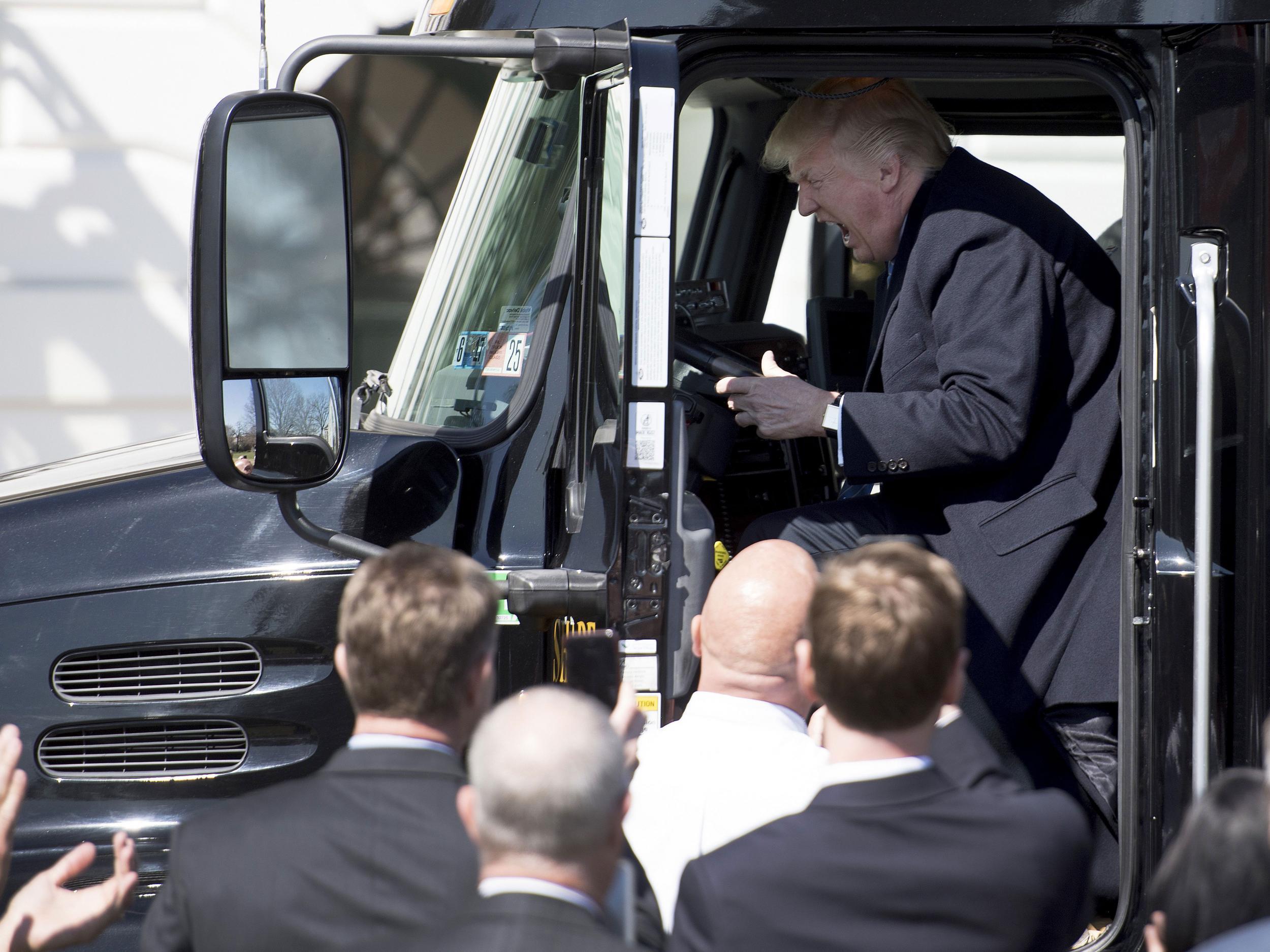Donald Trump’s immaturity and lack of self-control are beginning to define him
President has seemed at times like a corrupt Nixon, a rabble-rousing populist and a big business corporatist. Gradually, it is becoming clear that none of these guises are accurate

At certain times Donald Trump has seemed like a budding authoritarian, a corrupt Nixon, a rabble-rousing populist or a big business corporatist.
But as Trump has settled into his White House role, he has given a series of long interviews, and when you study the transcripts it becomes clear that fundamentally he is none of these things.
At base, Trump is an infantalist. There are three tasks that most mature adults have sort of figured out by the time they hit 25. Trump has mastered none of them. Immaturity is becoming the dominant note of his presidency, lack of self-control his leitmotif.
First, most adults have learned to sit still. But mentally, Trump is still a seven-year-old boy who is bouncing around the classroom. Trump’s answers in these interviews are not very long — 200 words at the high end — but he will typically flit through four or five topics before ending up with how unfair the press is to him.
His inability to focus his attention makes it hard for him to learn and master facts. He is ill informed about his own policies and tramples his own talking points. It makes it hard to control his mouth. On an impulse, he will promise a tax reform when his staff has done little of the actual work.
Second, most people of drinking age have achieved some accurate sense of themselves, some internal criteria to measure their own merits and demerits. But Trump seems to need perpetual outside approval to stabilise his sense of self, so he is perpetually desperate for approval, telling heroic fabulist tales about himself.
“In a short period of time I understood everything there was to know about healthcare,” he told Time. “A lot of the people have said that, some people said it was the single best speech ever made in that chamber,” he told The Associated Press, referring to his joint session speech.
By Trump’s own account, he knows more about aircraft carrier technology than the Navy. According to his interview with The Economist, he invented the phrase “priming the pump” (even though it was famous by 1933). Trump is not only trying to deceive others. His falsehoods are attempts to build a world in which he can feel good for an instant and comfortably deceive himself.
He is thus the all-time record-holder of the Dunning-Kruger effect, the phenomenon in which the incompetent person is too incompetent to understand his own incompetence. Trump thought he’d be celebrated for firing James Comey. He thought his press coverage would grow wildly positive once he won the nomination. He is perpetually surprised because reality does not comport with his fantasies.
Third, by adulthood most people can perceive how others are thinking. For example, they learn subtle arts such as false modesty so they won’t be perceived as obnoxious.
But Trump seems to have not yet developed a theory of mind. Other people are black boxes that supply either affirmation or disapproval. As a result, he is weirdly transparent. He wants people to love him, so he is constantly telling interviewers that he is widely loved. In Trump’s telling, every meeting was scheduled for 15 minutes but his guests stayed two hours because they liked him so much.
Which brings us to the reports that Trump betrayed an intelligence source and leaked secrets to his Russian visitors. From all we know so far, Trump didn’t do it because he is a Russian agent, or for any malevolent intent. He did it because he is sloppy, because he lacks all impulse control, and above all because he is a seven-year-old boy desperate for the approval of those he admires.
The Russian leak story reveals one other thing, the dangerousness of a hollow man.
Our institutions depend on people who have enough engraved character traits to fulfil their assigned duties. But there is perpetually less to Trump than it appears. When we analyse a president’s utterances we tend to assume that there is some substantive process behind the words, that it’s part of some strategic intent.
But Trump’s statements don’t necessarily come from anywhere, lead anywhere or have a permanent reality beyond his wish to be liked at any given instant.
We’ve got this perverse situation in which the vast analytic powers of the entire world are being spent trying to understand a guy whose thoughts are often just six fireflies beeping randomly in a jar.
“We badly want to understand Trump, to grasp him,” David Roberts writes in Vox. “It might give us some sense of control, or at least an ability to predict what he will do next. But what if there’s nothing to understand? What if there is no there there?”
And out of that void comes a carelessness that quite possibly betrayed an intelligence source, and endangered a country.
Copyright The New York Times
Join our commenting forum
Join thought-provoking conversations, follow other Independent readers and see their replies
Comments
Bookmark popover
Removed from bookmarks